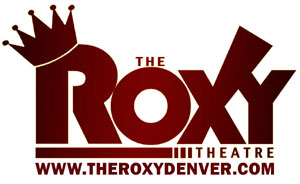The Manager’s Corner July 2012
by Chris Daniels
Independent Contractors vs. Employers
I’ve managed my own band since the 1980s, and despite the amazing change in technology, success in the music business is built around four tried and true elements: great music, really hard work, and timing (often mistaken for luck). The other key element is getting the help you need to make that luck happen. These days that help is everywhere. The book I wrote for my UCD class on artist management is called “DIY: You’re Not in it Alone” and that is exactly what you need to understand.
There has been a lot of buzz going around the music community about the Department of Labor (DOL), and how they classify musicians playing in one specific band over a period of months/years, and about event companies that book various artists and bands to play at festivals, parties and the like. It is an involved topic but I want to break it down so that bandleaders, bands, and people booking bands and artists KNOW the basic facts about the dos and don’ts when it comes to setting up your business structures for your “company.”
Notice I wrote ‘company,’ that is your first clue to understanding the issues. If you get paid for playing, and you pay yourself and the other members in the band for playing, (at Herman’s or the various summer festivals), the DOL views that as an employer/employee relationship. And in the case of a major successful band making a living playing music with a major label deal, and national tours, DOL has a point. A member of the Fray, 3oh3, or One Republic is probably working with a “company structure” that includes the members of the band drawing a “salary,” the requirement that the members of that band not join another band and do shows with them, plus health insurance and even a 401K plan for investments. In that case, the band may establish a business structure that may be a corporation, or an LLC, that pays other employees, like publicists and road managers, who will have ‘withholding’ taken out of their checks, and the company will file monthly or quarterly statements with the IRS. That kind of sophisticated structure entitles those employees to file for unemployment if they are fired or laid off.
But what if you are not that kind of band? You are doing 75 to 150 shows a year with mostly the same people, but every now and then you have ‘subs’ for a gig because somebody is doing a special jazz night with another ‘project,’ or you are doing a special show and want to add a horn section, or whatever? You and your fellow band members are making $20,000 a year, and also holding down a day job in order to meet your bills. And the ‘company’ you have created is not listed on any paper anywhere, just the name of the band, and you put all the checks in your drummer’s name because she has a bank account with the band’s name and she writes checks to the band after the gigs? What then?
Well, this is where DOL has a big problem with your structure, because you have not established yourself as “independent contractors” who are working for the “company” as part of a service that you could (and do) offer to other “companies.” And that means if you, as a band, decide to kick somebody out, and they file for unemployment, you are in a world of hurt because DOL will rule that the “company” was an employer, and you all were employees, and that (a) W2s should have been filed, (b) the company is liable for all the unemployment insurance that should have been paid by the company over the period that the member you kicked out was working with you, (c) there can be serious fines for not coming up with the money and restructuring your band as an employee/employer company. It sounds scary and it is. What are your options? THINK AND PLAN AHEAD.
If you and your band members really are ‘independent contractors’ and you fit within the guidelines set forth in Section 8-70-115 of the law, then you need to do the following: (1) Set up your band as a ‘company’ using a structure like a Sub Chapter S Corporation or as a Limited Liability Corporation (LLC), including filing for an EIN (employment identification number) for your company with the IRS. (2) Establish a company bank account and follow all the regulations for tracking income and payments set forth by your company structure; for example, filling out W9 forms before the gigs, sending out 1099s to band members at the end of the year, reporting all that on Form 1096 to the IRS by February 28 – after year’s end. Also, set up a clear and complete “Independent Contractor Agreement” between your company and your band members that each and every one of them sign, and I would suggest notarize. That agreement must contain (and you must follow) the 9 stipulations set forth in the law that qualify you as an independent contractor. Go to the website below to read the nine stipulations. http://www.coworkforce.com/uit/cesa/2008%20cesa/article_70.htm#8-70-115.%20Employment%20-%20Federal%20Unemployment%20Tax%20Act
These are very specific requirements (stipulations) that say things like, “you do not provide instruments, you do not provide training, players in the band are free to play for any other ‘company’ without any repercussions from the company (band), and that they do not co-mingle their business with the ‘company’ business.
And don’t think, “Oh this will not happen to me.” There have been a number of cases that have come before the DOL, and they tend to automatically rule that the relationship is one of employer/employee no matter how good your paperwork is. It happened to me, and I had to go through a long appeals process to get the ruling reversed. I was lucky, I had all my ducks in a row, and the judge in the hearing could see we were all independent contractors. My paperwork was great. But others have not been so lucky. And if you have none of this documentation, you are SOL. So please, learn more about this really important issue for bandleaders, band members, “democracy bands” and event companies. If you blow this, it can literally put your band out of business. If, after you have read the statute, and talked to a friend who is a lawyer who can help you set up a simple LLC and independent contractor agreement, and you still have questions, you can email me at CU Denver where I teach, or through the Chris Daniels & The Kings website. Please don’t blow this off. The music is the most important thing, but if you’re going ‘pro’ then the business is just as important. Next month, getting ‘live performance’ money for gigs from your PRO! It’s new and it’s happening now!
Category: The Post


















